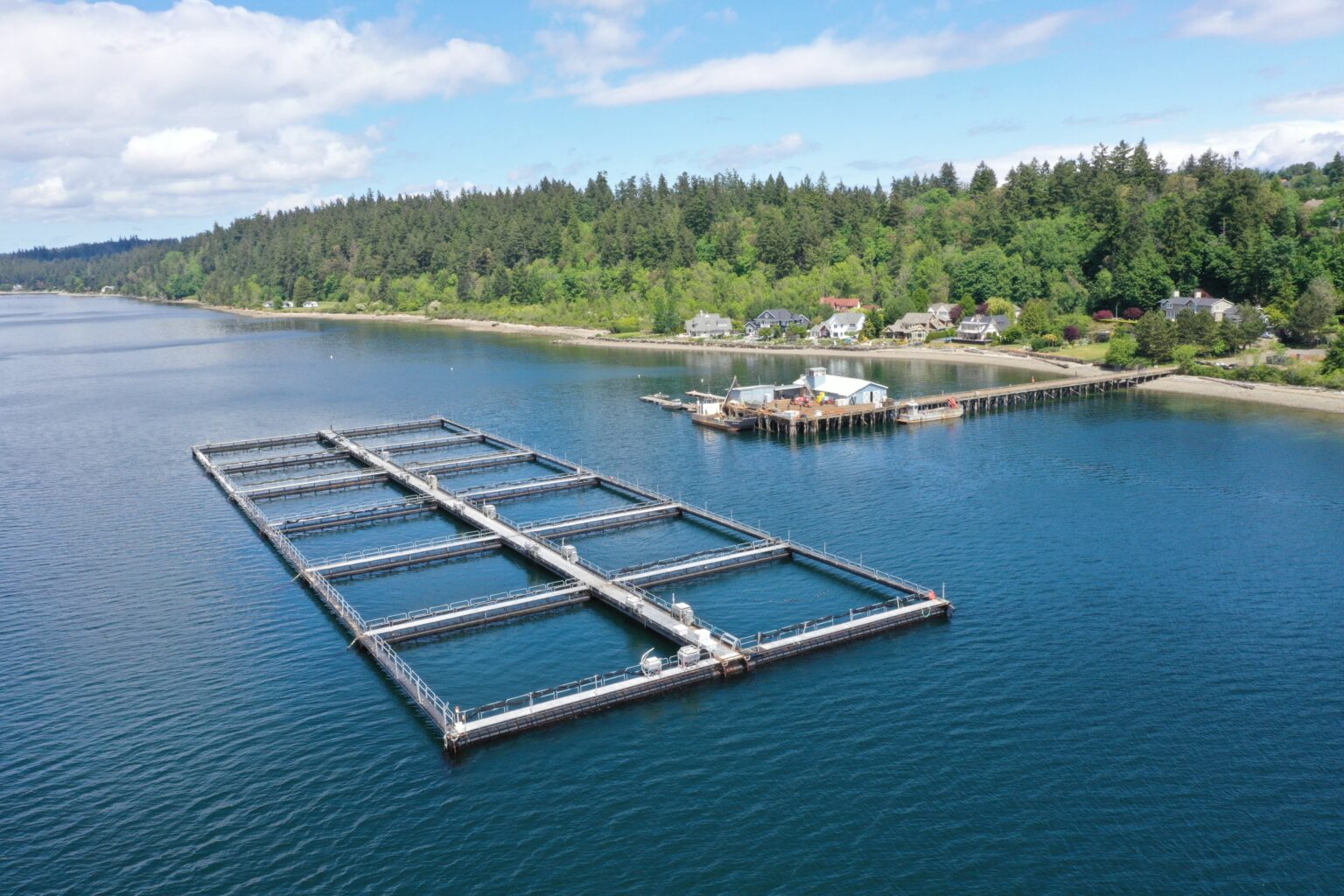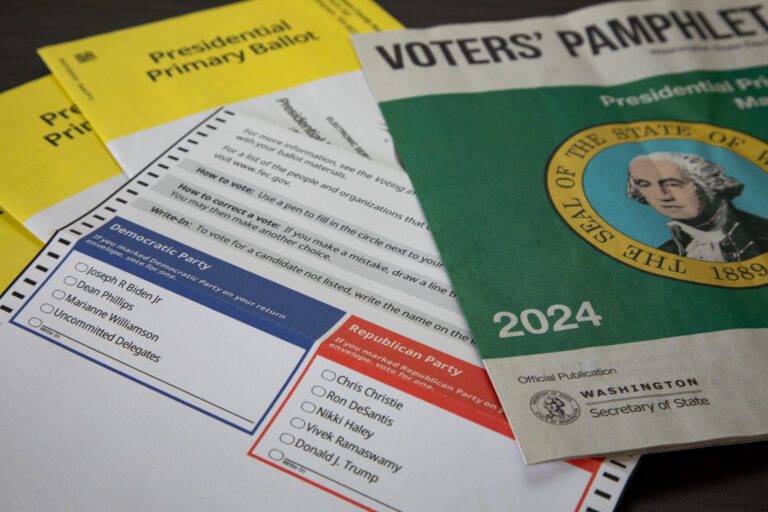Commercial finfish net pen aquaculture has been permanently banned on state-owned aquatic lands, Washington’s Commissioner of Public Lands Hilary Franz announced Friday morning.
The announcement, which came with an executive order prohibiting the practice, follows on the heels of Monday’s Department of Natural Resources (DNR) decision to cancel the two remaining net pen leases in Puget Sound waters.
“Commerical finfish net pens are not in the best interest of Washington State,” Franz said during a press conference on Bainbridge Island Friday morning. “With pollution, dams, destroyed habitat and warming waters, our marine ecosystems and our native stocks of wild salmon face far too many threats.”
Franz said the risks posed by net pen farms are too high, particularly as threats against wild salmon populations persist.
These risks and negative impacts, Franz said, include massive numbers of fish corralled into too-small pens, consolidated animal waste and polluted waters.
On Monday, DNR opted to cancel the two remaining net pen leases in Puget Sound Waters, owned by Cooke Aquaculture, which owned the salmon pen near Cypress Island that collapsed in 2017, just eight months into Franz’s role as commissioner.
Thousands of non-native Atlantic salmon were released when the pen collapsed, which Franz said spread disease and increased competition for already limited food and habitat resources in the region.
“We’ve witnessed too many violations of our lease agreements,” she said. “Denying requests to re-lease these sites based on previous lease violations does not go far enough to protect our waters.”
The collapse was decried as an environmental disaster in some news accounts at the time, and small numbers of Atlantic salmon were later found upstream in Puget Sound rivers, including the Skagit. None of the salmon have proven to have reproduced or established an ongoing population in Puget Sound, however.
Options to lease will not exist under the new executive order, which permanently prohibits commercial net pens on state-owned waters and state aquatic lands.
Franz said the “scientific evidence is clear,” and net pen farming cannot be allowed on state lands moving forward.
In a statement released Tuesday, Cooke called the decision disappointing.
“Regulators and policymakers must responsibly follow the science and judicial precedents in making key decisions regarding marine aquaculture, which we do not believe was the case in this instance,” they wrote. “A recent Federal Biological Opinion and a recent Washington Supreme Court decision both reaffirm the state of the science that fish farming does not have an adverse impact on the environment. All of these factors are contrary to DNR’s decision to not renew our leases.”
In March, the National Oceanic and Atmospheric Administration released a biological opinion that indicated finfish farming does not harm local salmon populations. The report concluded marine finfish rearing “is not likely to jeopardize the continued existence” of Chinook salmon and steelhead, among other Puget Sound fish populations.
Indigenous communities applauded DNR’s decision and Franz’s Friday announcement.
“This is a treaty rights issue,” said Suquamish Tribe Chairman Leonard Forsman, who attended Friday’s press conference with Franz. “We’ve really worked hard as a tribe to reverse and prevent the industrialization of Puget Sound because the most important thing to us are salmon, shellfish and clean water.”
Wild Fish Conservancy Executive Director Emma Helverson, who also attended the conference, celebrated the decision as a major win for Puget Sound health.
“The importance of this decision for wild salmon, for water quality, for the greater health of Puget Sound cannot be overstated,” Helverson said. “Washington will never face the risk of a catastrophic collapse ever again.”
Franz called the executive order “a true promise to do better going forward.”
“Not only for Washington’s salmon, orcas and other native marine species, not just for the aquatic environments of Puget Sound,” she said, “but for the Indigenous tribes whose culture and identity are forever intertwined with these native species, and for future generations of Washingtonians who must be ensured access to this important culture and natural resource.”




